by [email protected] | Feb 19, 2020 | Legendary Leadership
Podcast: Play in new window | Download
 Dr. Russell Kirk is an old friend I met through podcasting, and someone I admire because of his views on leadership and how he carries out his life in such an impactful way. Dentistry needs more courageous leaders who are able to handle uncomfortable truths and face difficult things, and today we will talk about what it means to be a courageous leader and lessons learned from our mistakes.
Dr. Russell Kirk is an old friend I met through podcasting, and someone I admire because of his views on leadership and how he carries out his life in such an impactful way. Dentistry needs more courageous leaders who are able to handle uncomfortable truths and face difficult things, and today we will talk about what it means to be a courageous leader and lessons learned from our mistakes.
Listen in as we discuss where leadership goes wrong, as well as how to be better leaders and practice owners through embracing and learning from the uncomfortable moments. You’ll hear wisdom learned on the Jiu-Jitsu mats that is applicable to our practices, why it’s important to leave behind that risk-aversion we picked up in training, and more.
Tune in and meet more Legendary Leaders
Key Quotes:
- “If I have presented a problem, I want to know about it and take care of it, rather than hear about it later.”
- “You’ve got to get out of the comfortable. You’ve got to get into places where you’re fearful or feeling awkward, and that’s where growth happens.”
- “We become risk-averse because of our training and that kind of cripples our growth.”
- “What opportunity does that moment provide for you to grow?”
- “What podcasting has done for me personally is providing an opportunity for me to practice by myself but not alone.”
Featured on the Show:


by [email protected] | Feb 12, 2020 | Hints for Happiness
Podcast: Play in new window | Download
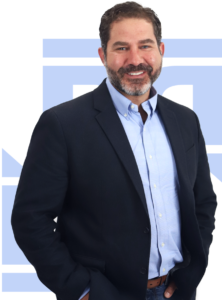 If you’re at a point with your practice where you feel like you are bored, burnt out, and broken, it’s probably not your circumstances, community, or team. What it probably means is that you are lacking purpose, or you’ve lost your purpose somehow. In this episode, I’ll be talking about the importance of having and maintaining a strong sense of purpose and fighting to keep pursuing it.
If you’re at a point with your practice where you feel like you are bored, burnt out, and broken, it’s probably not your circumstances, community, or team. What it probably means is that you are lacking purpose, or you’ve lost your purpose somehow. In this episode, I’ll be talking about the importance of having and maintaining a strong sense of purpose and fighting to keep pursuing it.
Listen in as I present to you Dentistry’s Chasm of Meaning. This is an illustration that I’ll walk you through in order to understand why and where purpose gets lost in the process of working through our dentistry careers. I will discuss everything from avoiding the games that cannot be won to creating a prosperous practice where you can serve people at a higher level.
Be inspired, tune in to more Hints for Happiness Podcast Episodes
Key Quotes:
- “Life is never made unbearable by circumstances, but only by lack of meaning and purpose.”
- “I believe we are trying to find external solutions to internal problems, which never leads to a happy ending.”
- “If we try to be everything to everyone, we are nothing to no one.”
- “Our default is more is better and dentistry is success.”
- “Burnout is giving more than you’ve got for too long.”
Featured on the Show:


by [email protected] | Feb 5, 2020 | Legendary Leadership
Podcast: Play in new window | Download
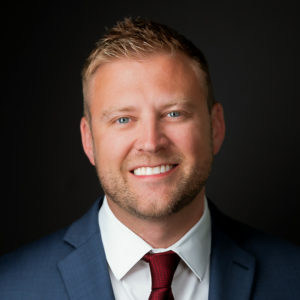 When I talk to dentists, a lot of the conversation is about how to get everyone rowing in the same direction. In this episode, my good friend Dr. Paul Etchison joins me to share his insight and years of expertise on leadership and implementing systems that create a unified and purposeful practice.
When I talk to dentists, a lot of the conversation is about how to get everyone rowing in the same direction. In this episode, my good friend Dr. Paul Etchison joins me to share his insight and years of expertise on leadership and implementing systems that create a unified and purposeful practice.
Listen in as Dr. Etchison talks about why wanting to be the best is not enough and why it’s important to focus on a bigger, more meaningful picture. He shares how he maintains order and good communication as the business grows, what he does to attract the best team members, and how that, in turn, creates an office culture that allows the practice to succeed.
Tune in and find more Legendary Leaders
Key Quotes:
- “We’ve grown a lot faster, and when we started taking it exponentially higher was when I dropped down to three days of clinical.”
- “Over eight years—not a single person has left.”
- “We want to win. Everyone is working together, and everyone just kind of has that mentality that ‘let’s get better at this.’ I think the results speak for themselves.”
- “We’re not just being the best in town; we’re changing how the public thinks about dentistry so that we can help more people.”
- “I’m leading by example by taking good care of patients.”
- “We have to look at the macro implications of what we do all day. That’s what is inspirational to the team: knowing that even the little stuff makes a big difference. You have to communicate that as the leader.”
- “We talk about what we need to improve so much that we forget about what we’re doing well.”
- “Learn from people that are doing it well. Always be learning.”
Featured on the Show:


by [email protected] | Jan 29, 2020 | Prescriptions for your Practice
Podcast: Play in new window | Download
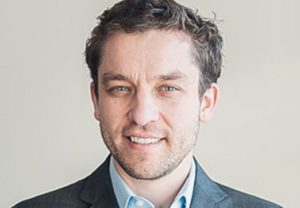 Comparison and unrealistic expectations are often not talked about, but both happen frequently in dentistry. Today Tiger Safarov, founder of dental inventory management software ZenSupplies, joins the show to discuss the worrying topic of depression in dentistry and how to handle the stress of debt after schooling.
Comparison and unrealistic expectations are often not talked about, but both happen frequently in dentistry. Today Tiger Safarov, founder of dental inventory management software ZenSupplies, joins the show to discuss the worrying topic of depression in dentistry and how to handle the stress of debt after schooling.
Listen in as Tiger shares what he thinks you should delegate to your assistant so you don’t feel overwhelmed, as well as why you should value your dental assistant. You’ll learn the importance of allowing yourself to make mistakes, how to connect with your team, and more.
Be inspired and find more insights from Prescriptions for Your Practice Podcast Episodes
Key Quotes:
- “Just do the right thing. Keep moving and keep building.”
- “There is a huge disconnect of your expectations and what happens when you finish dental school.”
- “We take this identity of expert and we put it in all these places where we have no expertise … That’s where dentists end up in this place of burnout.”
- “My biggest concern is that there are too many people suffering in silence.”
- “The longer you’re sidetracked, the harder it is to course-correct.”
- “Permission to make mistakes is so important.”
Featured on the Show:


by [email protected] | Jan 22, 2020 | Bold Biographies
Podcast: Play in new window | Download
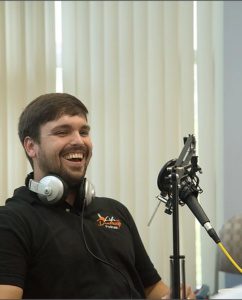 Today Dr. Joe Blaylock joins me to share his transformation from losing his sense of purpose to dialing in and locking into a successful and impactful future. It’s easy to feel lost and frustrated coming out of dental school, and Joe opens up about how he was able to leverage coaching, mindset work, vision, and purpose to get him to where he is now.
Today Dr. Joe Blaylock joins me to share his transformation from losing his sense of purpose to dialing in and locking into a successful and impactful future. It’s easy to feel lost and frustrated coming out of dental school, and Joe opens up about how he was able to leverage coaching, mindset work, vision, and purpose to get him to where he is now.
Listen in as we discuss how he initially had a fear of having a startup, as well as what helped him overcome that fear. You’ll hear about some of the biggest challenges he has faced along his journey, what helped push him through, and how to see the big picture and understand the process that leads to success.
Be inspired, tune in, and find more Bold Biographies Podcast Episodes
Key Quotes:
- “In dental school, I always had the vision of having a startup, but I was too afraid to do it.”
- “I fear it, but I need to do it.”
- “It’s a personal development program with a compensation program attached to it.”
- “The business will expose yourself to yourself, right? It’s a self-awareness program.”
- “You put in above average effort, you will get above average results.”
- “What I’ve learned is good and sustainable is a process.”
- “You have to have the right people and you have to give them the roadmap.”
Featured on the Show:


by [email protected] | Jan 15, 2020 | Maverick Mind Shifts
Podcast: Play in new window | Download

Today I am excited to have Dr. Gina Dorfman back on the show! A speaker, practice owner, and host of the Behind the Smiles podcast, Gina has some great insight on what it takes to lead and run a successful practice This episode is full of wisdom from a dentist and entrepreneur who has really taken the time to examine herself and her practice honestly and thoroughly.
Listen in as Gina and I talk about the importance of who you surround yourself with, as well as how we can be more in tune with what we want and what our patients want. You’ll learn how to break free from tunnel vision, the importance of focusing on doing what feels good, and how that actually ends up positively affecting everyone in the long run.
Key Quotes:
- “A good influencer challenges you and makes you think differently.”
- “Every decision I make is motivated by one thing: I want to feel good about myself.”
- “We educate [patients] without asking their level of awareness and finding out what they want. Our exam is to make us feel good.”
- “I like being surrounded by toxic people because if I get rid of all the toxic people, I will have to deal with all of the bad decisions I’ve made.”
- “He didn’t just fix his life—he gave back to other people. That’s the person I want to be.”
- “We need to stop lying to ourselves. We are so full of ourselves. We have this idea that we are the only ones who can do everything better than everyone else.”
Featured on the Show:


by [email protected] | Jan 8, 2020 | Bold Biographies
Podcast: Play in new window | Download
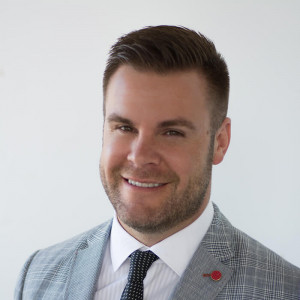
Dr. Nate Jeal has done a lot of things, making him a great example of how the journey to dentistry doesn’t have to be a straight path. His fascinating story and how he found his way into the field is both inspiring and eye-opening, and I know you’ll get a ton out of hearing him speak today.
Listen in as Nate shares why he gravitated toward dentistry, as well as how he eventually got into the field after coming from a totally different background. You’ll hear about the trials and challenges he faced while growing a business, how he and his wife got through those hardships, and the importance of perseverance as you navigate the path to success.
Be inspired, tune in, and find more Bold Biographies Podcast Episodes
Key Quotes:
- “The sense of scrappiness and doing whatever it takes to make the thing happen – that’s an important part of business ownership.”
- “It’s in those challenges that you really get to learn.”
- “Not all dentists have to be practice owners.”
- “Despite all the challenges people talk about in dentistry, the opportunity that’s presented by a dental degree is really unparalleled.”
- “If you have mental agility, you have the upper hand.”
- “Most of your patients or customers—they can tell when the motivation is anything other than their wellbeing or quality.”
- “In dentistry, the way to find success is by perfecting your craft, so becoming an excellent communicator, helping people really uncover what their wants are and to articulate the result people want to have—and then getting people that result in a really high-quality manner.”
Featured on the Show:


by [email protected] | Sep 11, 2019 | Legendary Leadership
Podcast: Play in new window | Download
 What do you want? Too often, people cannot answer that question, but the answer is what should be driving everything you do. After taking a summer hiatus to spend time with my family, work on my businesses, and get clear on what I really want to share on this podcast, I’m back with an episode about the importance of moving forward with persistence and clarity.
What do you want? Too often, people cannot answer that question, but the answer is what should be driving everything you do. After taking a summer hiatus to spend time with my family, work on my businesses, and get clear on what I really want to share on this podcast, I’m back with an episode about the importance of moving forward with persistence and clarity.
Listen in as I discuss what the “turtle strategy” is and what makes for a purposeful life. You’ll learn the habits and thoughts that quickly get you off track and how to re-direct yourself to get your time and focus back. From getting the proper direction and finding clarity to using purposeful planning and reflection, you will discover the next steps to take in order to stay headed in the right direction.
Tune in and meet more Legendary Leaders
Key Quotes:
- “Part of that forward motion requires a lot of direction.”
- “If we’re going further faster in the wrong direction, doesn’t that make it harder for us to get to where we actually belong?”
- “A practice is limited by its leader, and a leader is limited by their identity.”
- “We become the story that we tell ourselves, so we have to systematically reprogram that subconscious that was driving it all.”
- “If we think we suck as a manager or a clinician and don’t rewire that inclination, we will continue to suck.”
- “All businesses take on the personality of its leader, and if your personality, your ability, your capacities expand, so will your practice.”
Featured on the Show:


by [email protected] | May 8, 2019 | Legendary Leadership
Podcast: Play in new window | Download
 This episode features the incredibly insightful Tom Grass as he recounts the story of how he found dentistry and the path that led him to this career. This is one of the most powerful conversations I have ever had on the show, as Tom delves deep into the importance of being present and how to avoid always looking to the future or your next achievement.
This episode features the incredibly insightful Tom Grass as he recounts the story of how he found dentistry and the path that led him to this career. This is one of the most powerful conversations I have ever had on the show, as Tom delves deep into the importance of being present and how to avoid always looking to the future or your next achievement.
We discuss what Tom calls the UFO method and how to use this when approaching unpleasant discussions or delivering difficult news. You’ll learn how to create satisfaction out of inherently unsatisfying experiences. Listen in as we share personal stories about making connections with the people in our lives and touch on the responsibility you have to yourself to do the same.
Tune in and meet more Legendary Leaders
Key Quotes:
- “The minute you turn your patients into problems, tasks, or room numbers, you’ve failed.”
- “Dentistry checks all my boxes; you get to take care of people for a long time, you get to know people, and you get to be hands-on.”
- “Hospice is really good at showing you all the pieces and parts that surround someone’s life.”
- “You don’t know what people are living with, what people regret.”
- “Tell people what you need from them and give people what they want from you.”
- “When you are caring for people, you are giving away your emotional energy to them.”
Featured on the Show:


by [email protected] | Apr 24, 2019 | Prescriptions for your Practice
Podcast: Play in new window | Download
 Ritualization habituation—what is it exactly? And what does it have to do with growth and having your best year every year? In this episode, I’ll answer these questions and explain why it’s so important to be strategic about thoughts, patterns, and behavior.
Ritualization habituation—what is it exactly? And what does it have to do with growth and having your best year every year? In this episode, I’ll answer these questions and explain why it’s so important to be strategic about thoughts, patterns, and behavior.
Many people fail to leverage their full capabilities and drain themselves by giving more than they have. Listen in to learn how to avoid this common pitfall, how to create and nurture the habits that are so important to your success, and how personal development naturally leads to business development.
Be inspired and find more Prescriptions for Your Practice Episodes
Key Quotes:
- “We are essentially our habits—our patterns of thought and our patterns of behavior.”
- “Very strategically start instilling powerful habits and removing limiting beliefs to start having your best year every year.”
- “Get at the root of empowering behaviors so you don’t have to think about them—they’re just part of your day-to-day.”
- “The morning routine starts the night before.”
- “You’re doing what you said you would do. That helps your confidence. That helps your self-image. That helps your capacity to grow your business.”
- “When you go to the office, if your energy is not on, it will affect your ability to lead. It’ll affect your good will. It will affect your case acceptance.”
- “Once you change who you are, then everything changes.”
- “As you expand, so does your business.”
Featured on the Show:


 Dr. Russell Kirk is an old friend I met through podcasting, and someone I admire because of his views on leadership and how he carries out his life in such an impactful way. Dentistry needs more courageous leaders who are able to handle uncomfortable truths and face difficult things, and today we will talk about what it means to be a courageous leader and lessons learned from our mistakes.
Dr. Russell Kirk is an old friend I met through podcasting, and someone I admire because of his views on leadership and how he carries out his life in such an impactful way. Dentistry needs more courageous leaders who are able to handle uncomfortable truths and face difficult things, and today we will talk about what it means to be a courageous leader and lessons learned from our mistakes.


 If you’re at a point with your practice where you feel like you are bored, burnt out, and broken, it’s probably not your circumstances, community, or team. What it probably means is that you are lacking purpose, or you’ve lost your purpose somehow. In this episode, I’ll be talking about the importance of having and maintaining a strong sense of purpose and fighting to keep pursuing it.
If you’re at a point with your practice where you feel like you are bored, burnt out, and broken, it’s probably not your circumstances, community, or team. What it probably means is that you are lacking purpose, or you’ve lost your purpose somehow. In this episode, I’ll be talking about the importance of having and maintaining a strong sense of purpose and fighting to keep pursuing it. When I talk to dentists, a lot of the conversation is about how to get everyone rowing in the same direction. In this episode, my good friend Dr. Paul Etchison joins me to share his insight and years of expertise on leadership and implementing systems that create a unified and purposeful practice.
When I talk to dentists, a lot of the conversation is about how to get everyone rowing in the same direction. In this episode, my good friend Dr. Paul Etchison joins me to share his insight and years of expertise on leadership and implementing systems that create a unified and purposeful practice. Comparison and unrealistic expectations are often not talked about, but both happen frequently in dentistry. Today Tiger Safarov, founder of dental inventory management software
Comparison and unrealistic expectations are often not talked about, but both happen frequently in dentistry. Today Tiger Safarov, founder of dental inventory management software  Today Dr. Joe Blaylock joins me to share his transformation from losing his sense of purpose to dialing in and locking into a successful and impactful future. It’s easy to feel lost and frustrated coming out of dental school, and Joe opens up about how he was able to leverage coaching, mindset work, vision, and purpose to get him to where he is now.
Today Dr. Joe Blaylock joins me to share his transformation from losing his sense of purpose to dialing in and locking into a successful and impactful future. It’s easy to feel lost and frustrated coming out of dental school, and Joe opens up about how he was able to leverage coaching, mindset work, vision, and purpose to get him to where he is now.

 What do you want? Too often, people cannot answer that question, but the answer is what should be driving everything you do. After taking a summer hiatus to spend time with my family, work on my businesses, and get clear on what I really want to share on this podcast, I’m back with an episode about the importance of moving forward with persistence and clarity.
What do you want? Too often, people cannot answer that question, but the answer is what should be driving everything you do. After taking a summer hiatus to spend time with my family, work on my businesses, and get clear on what I really want to share on this podcast, I’m back with an episode about the importance of moving forward with persistence and clarity. This episode features the incredibly insightful Tom Grass as he recounts the story of how he found dentistry and the path that led him to this career. This is one of the most powerful conversations I have ever had on the show, as Tom delves deep into the importance of being present and how to avoid always looking to the future or your next achievement.
This episode features the incredibly insightful Tom Grass as he recounts the story of how he found dentistry and the path that led him to this career. This is one of the most powerful conversations I have ever had on the show, as Tom delves deep into the importance of being present and how to avoid always looking to the future or your next achievement. Ritualization habituation—what is it exactly? And what does it have to do with growth and having your best year every year? In this episode, I’ll answer these questions and explain why it’s so important to be strategic about thoughts, patterns, and behavior.
Ritualization habituation—what is it exactly? And what does it have to do with growth and having your best year every year? In this episode, I’ll answer these questions and explain why it’s so important to be strategic about thoughts, patterns, and behavior.